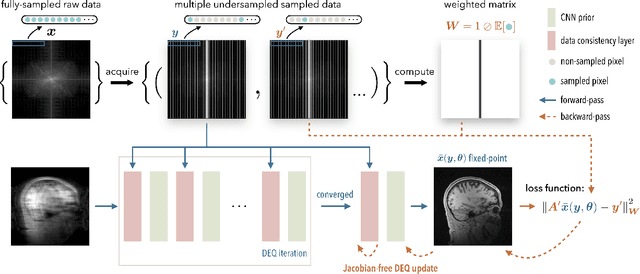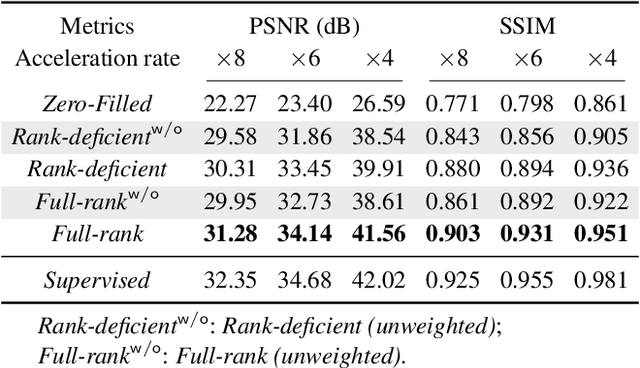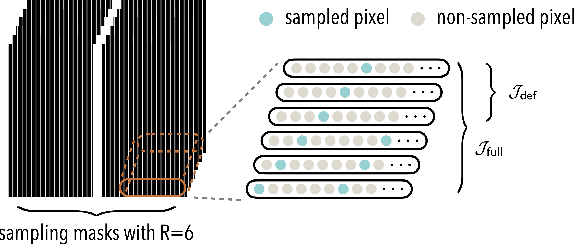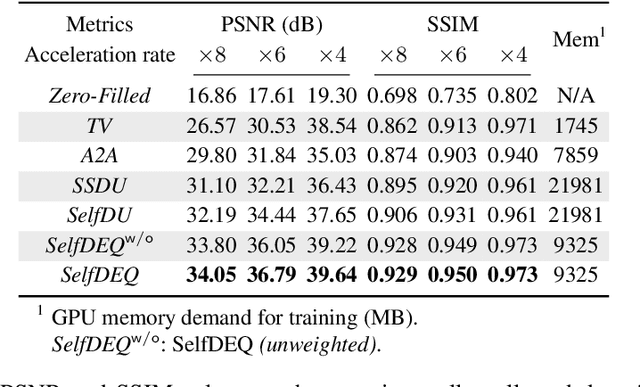Parna Eshraghi
Self-Supervised Deep Equilibrium Models for Inverse Problems with Theoretical Guarantees
Oct 07, 2022



Abstract:Deep equilibrium models (DEQ) have emerged as a powerful alternative to deep unfolding (DU) for image reconstruction. DEQ models-implicit neural networks with effectively infinite number of layers-were shown to achieve state-of-the-art image reconstruction without the memory complexity associated with DU. While the performance of DEQ has been widely investigated, the existing work has primarily focused on the settings where groundtruth data is available for training. We present self-supervised deep equilibrium model (SelfDEQ) as the first self-supervised reconstruction framework for training model-based implicit networks from undersampled and noisy MRI measurements. Our theoretical results show that SelfDEQ can compensate for unbalanced sampling across multiple acquisitions and match the performance of fully supervised DEQ. Our numerical results on in-vivo MRI data show that SelfDEQ leads to state-of-the-art performance using only undersampled and noisy training data.
 Add to Chrome
Add to Chrome Add to Firefox
Add to Firefox Add to Edge
Add to Edge